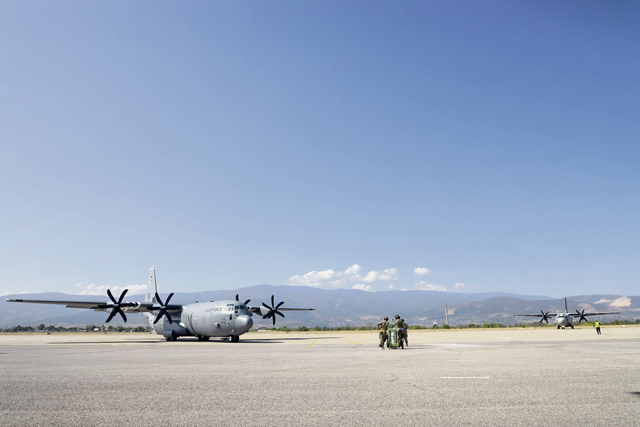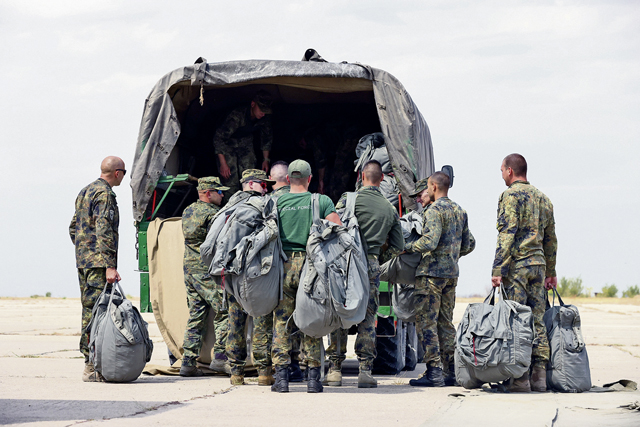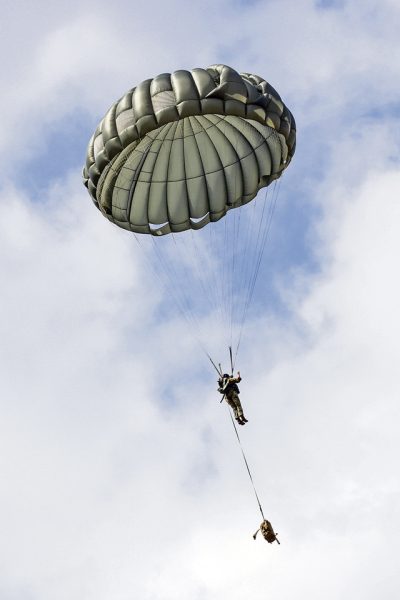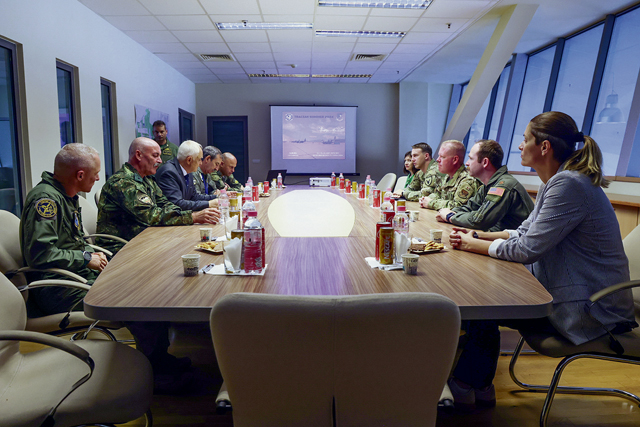
U.S. Airmen with the 86th Airlift Wing and 435th Air Ground Operations Wing from Ramstein Air Base, and U.S. Soldiers with the 1st Battalion, 10th Special Forces Group from Stuttgart, participated in exercise Thracian Summer 24 at Plovdiv Airport, Bulgaria, Aug. 19 – 29.
The exercise was designed to strengthen the capabilities of U.S. Airmen and Bulgarian armed forces through interoperability, joint readiness, and partnership.
“The Thracian exercise series is an annual to bi-annual exercise the 86th Airlift Wing has been executing with our Bulgarian partners for more than a decade,” said U.S. Air Force Capt. Zachary Palisch, Thracian Summer 2024 mission commander. “No matter the time of year, our ever-growing relationship with the Bulgarian military has been a true constant, built to stand the test of time.”

U.S. Air Forces in Europe has held training events like this in Bulgaria in the past. The training is conducted in coordination with the government of Bulgaria and is intended to bolster interoperability between the nations and build upon a shared commitment to regional security.
Learning was a constant throughout the exercise. Members, such as U.S. Air Force Airman 1st Class Zatavious Warren, 37th Airlift Squadron loadmaster, viewed the exercise as an opportunity to learn and grow by working with different groups and people.
“We’re working with different agencies within the Air Force and the Army, as well as our host nation,” said Warren. “We coordinated everything really well, and we worked as a great team!”

This year’s exercise held an open media day event for local and international outlets to view a joint aerial demonstration and conduct interviews with U.S. Air Force Maj. Sean Andrews, Thracian Summer 24 detachment commander, and Bulgarian Minister of Defence Atanas Zapryanov. The media event allowed both U.S. Air Force and Bulgarian military leadership to discuss joint capabilities through operational and tactical discussions.
“As we prepare for future endeavors, our continued training with all NATO partners has never been more important,” said Palisch. “Strengthening our partnerships with the Bulgarian air force ensures a key component for the team that will help preserve a peaceful future and keep our shared adversaries at bay.”
Maintaining a close relationship with NATO allies and partners facilitates the opportunity to share knowledge and tactics to build up a stable coalition force.
“Since its infancy, the number one objective of this exercise has been to continue to grow and strengthen our relationship with our Bulgarian partners,” said Palisch. “Low-level flying, tactical data-link training, oversized cargo loading, bi-lateral personnel drops, and dissimilar formation flying with the C-27J make up just some of the objectives accomplished during this exercise.”
During their training with the Bulgarian armed forces, U.S. Airmen were able to conduct unconventional and specialized events.
“Bulgaria offers training we simply cannot get anywhere else,” said Palisch. “They have mountainous terrain and airspace that allow our pilots to fly at night and in a new challenging environment that we simply cannot get in Germany. Exercises like this, where we are away from home station with limited supplies and personnel, force our members to adapt and train like they would in a real, contested environment should that call ever come.”
The partnership between the U.S. and Bulgaria has strengthened over the years through exercises like Thracian Summer and members from both nations are appreciative for the training and friendships they have made.
“Our job is to identify the differences between our flying communities and develop procedures to overcome them,” said Palisch.“In the future, I would love to see the exercise continue to grow with more people, objectives, planes, and resources. The only way to continue to grow our NATO relationships is by committing ourselves to ensuring exercises like Thracian Summer happen each year.”



